
The nutritional status of school-going children is influenced by the intake of nutrients but also any nutrient losses that result from infectious disease burden. The idea is to design games, and fun activities to improve the nutrition intake and awareness about nutrition and self hygiene.
Location: Karnataka
Setting: 2538 schools in 3 districts in Karnataka
Duration: 3 months
Target Audience: Students from grades 1-10. 450,000 children

Project background
In collaboration with PATH and local partners in Karnataka, India, Sight and Life work to improve nutrition status and build healthy hygiene habits amongst school children. The program provides a nutrient-rich meal of fortified rice while promoting good hygiene habits through peer role models, games, and problem-based learning in 2,600 schools in the Indian state of Karnataka. Multiple organisations such as Karuna Trust, and the Government of Karnataka collaborated in order to conduct research and help us translate the information. We further designed cards with songs, poems, and illustrations to help students of government schools to learn about the importance of nutrition and Hygiene. The games were a part of a Kit that could further be circulated within schools and institutions to help spread awareness in a fun manner.
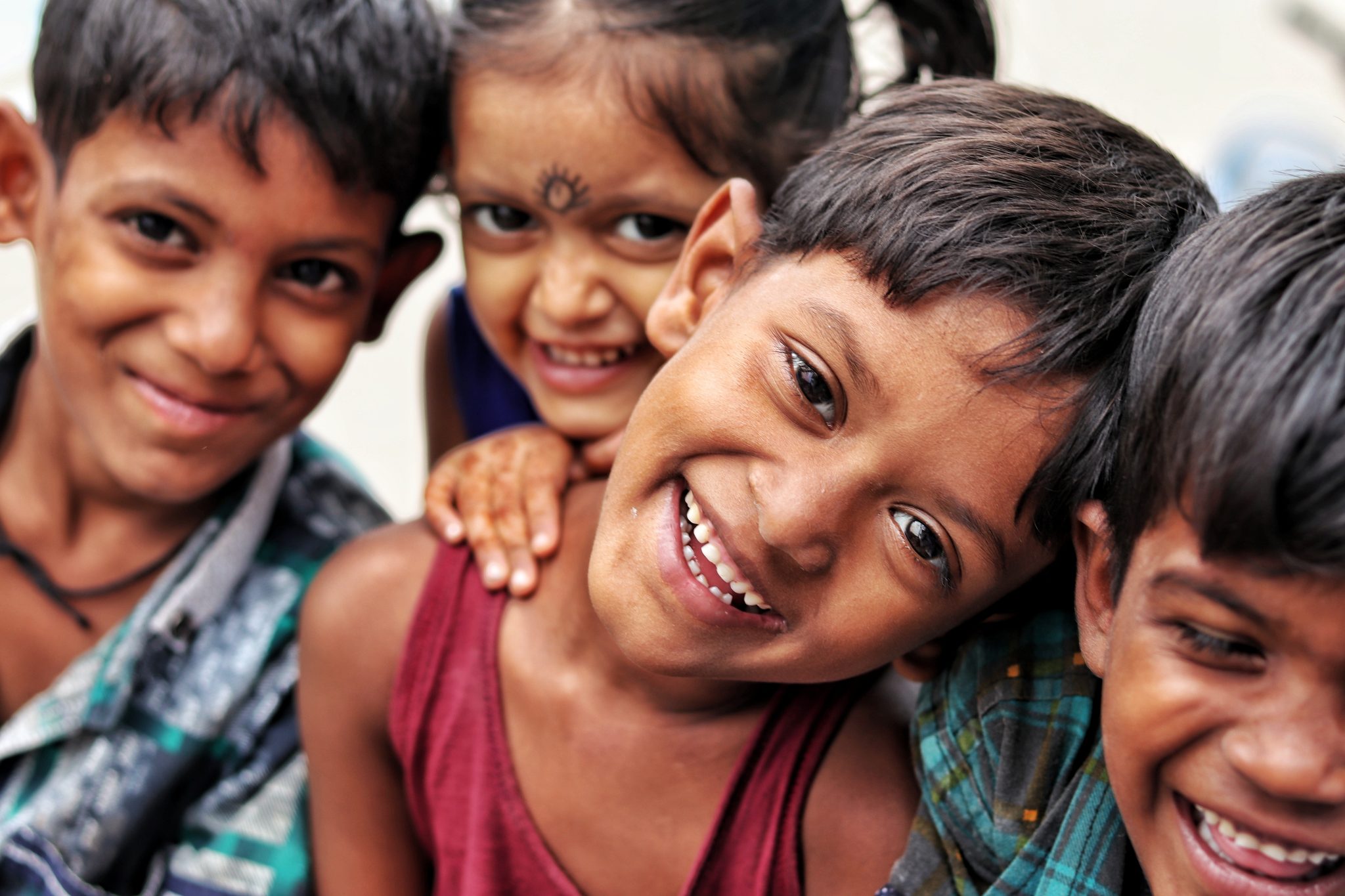
Objectives
We aim to motivate and persuade children to engage in healthy eating, hand washing with soap, safe water use and good sanitation practices. The idea was to empathise with them and design products that are children-centric. This would encourage them to play games and recite poems and songs while learning the importance of nutrition and hygiene practices.
This project aims to change behaviours, attitudes, and motivations towards their own health. If the students are sensitive about their hygiene they can surely grow up and help improve the living conditions of their family too.
Wash hands before eating and make it a practice
Eat healthy food and avoid fast food
Keep your surroundings clean for yourself and at school
Use clean washrooms and flush after use
Throw waste into the bins and recycle old products than buying new
Learn and document healthy habits with the help of games and poems.
We Designed a portable & Fun Kit for Education in Nutrition and Hygiene
Check out A quick Stop-Motion animation to give you a glimpse of super fun games, illustrations and activities within our Nutrition and Hygiene Kit.
Phase wise research and Development
Phase 1 was an exploratory phase. This phase lasted 1 week and was used to design instruments to examine the physical, social, normative and biological factors explored closely in the formative phase.
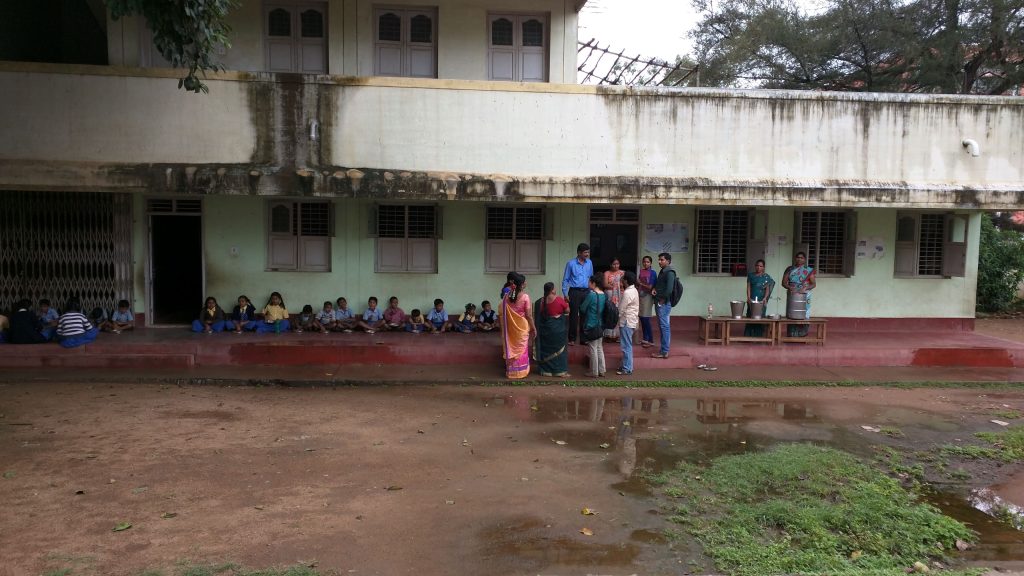
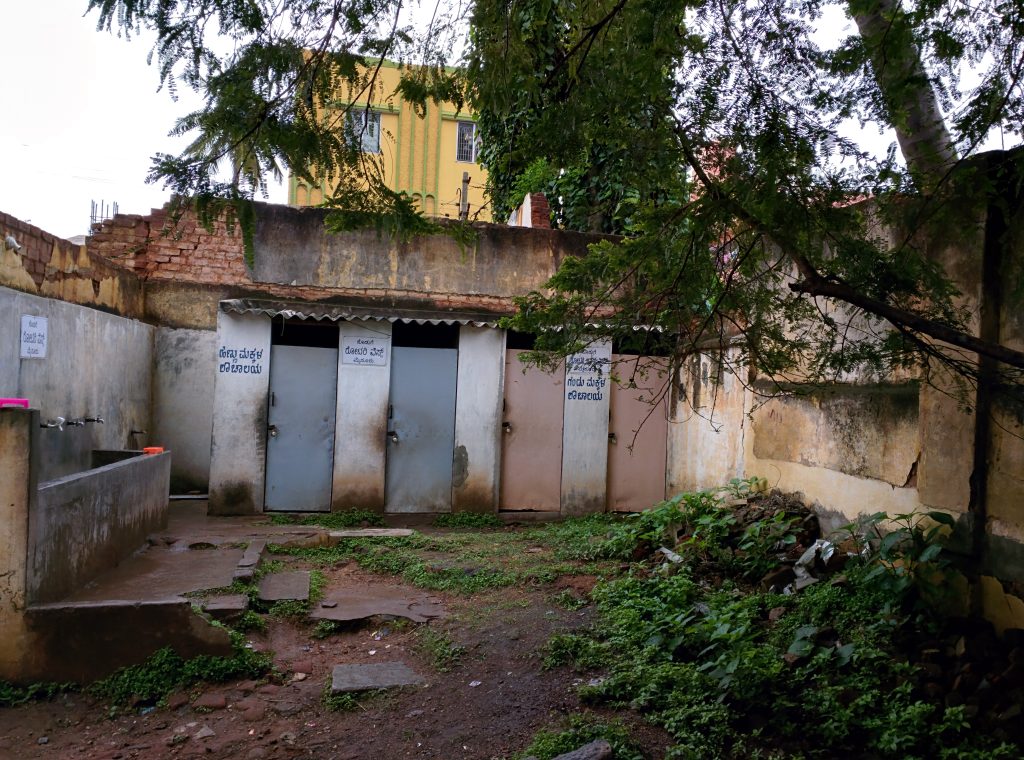
Phase 2 was a formative phase where teams conducted an ethnographic study to understand the drivers and constraints for hygiene and healthy eating, among children and teachers. This phase uses interviews (card sort, attitude scales, and open-ended questions) and focuses on groups to uncover the drivers and barriers to behaviour change. We explore cues and understanding of students’ expectations for cleanliness and sanitation in the home and school environments, and motivational factors that underlie children’s hygiene behaviours. Additionally, we spoke to parents and teachers to understand their expectations on healthy eating and WASH.
Phase 3 was to design and implement the pilot. Drawing on the insights of the formative phase, we developed three strategies to cover the various developmental phases of children ages 6-15. Taken together, the strategies aim to create positive experiences and motivate children through cues, play, and peer modelling.
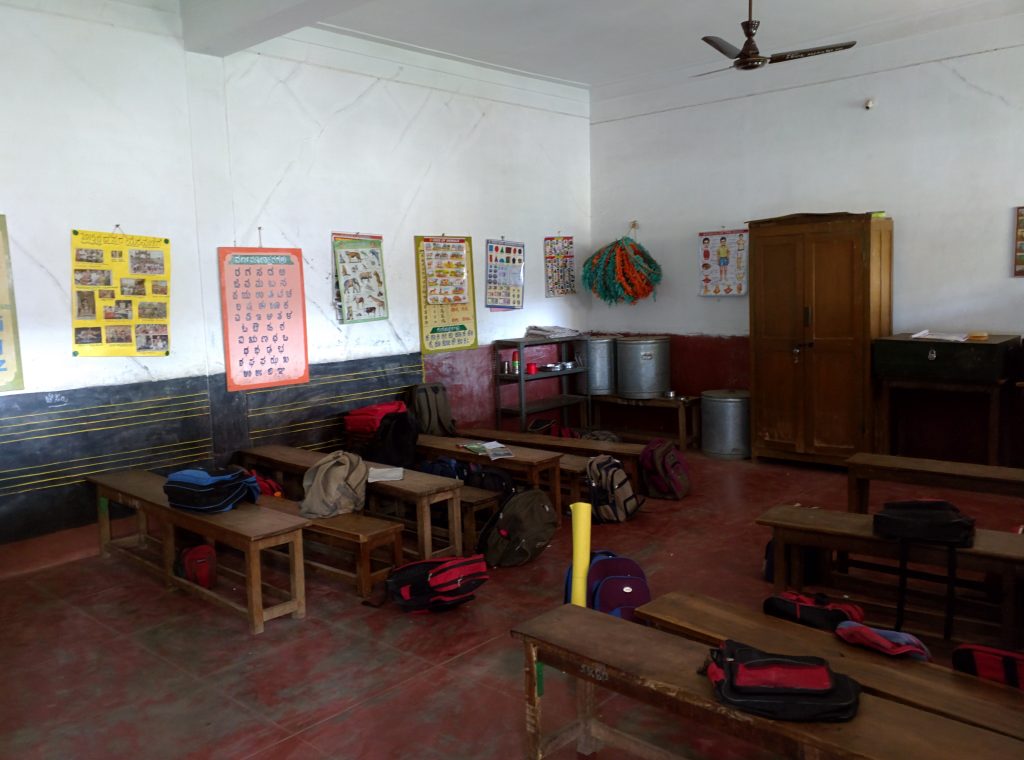
Cards Design
Researched, conceptualised and hand drew 120+ Illustrations using poster colors to have a raw and organic effect to the cards. We did our research about the books, story books and art styles used for children books in south and designed something that is colorful yet subtle. These cards were made available in Kannada and English in each school and for every grade.
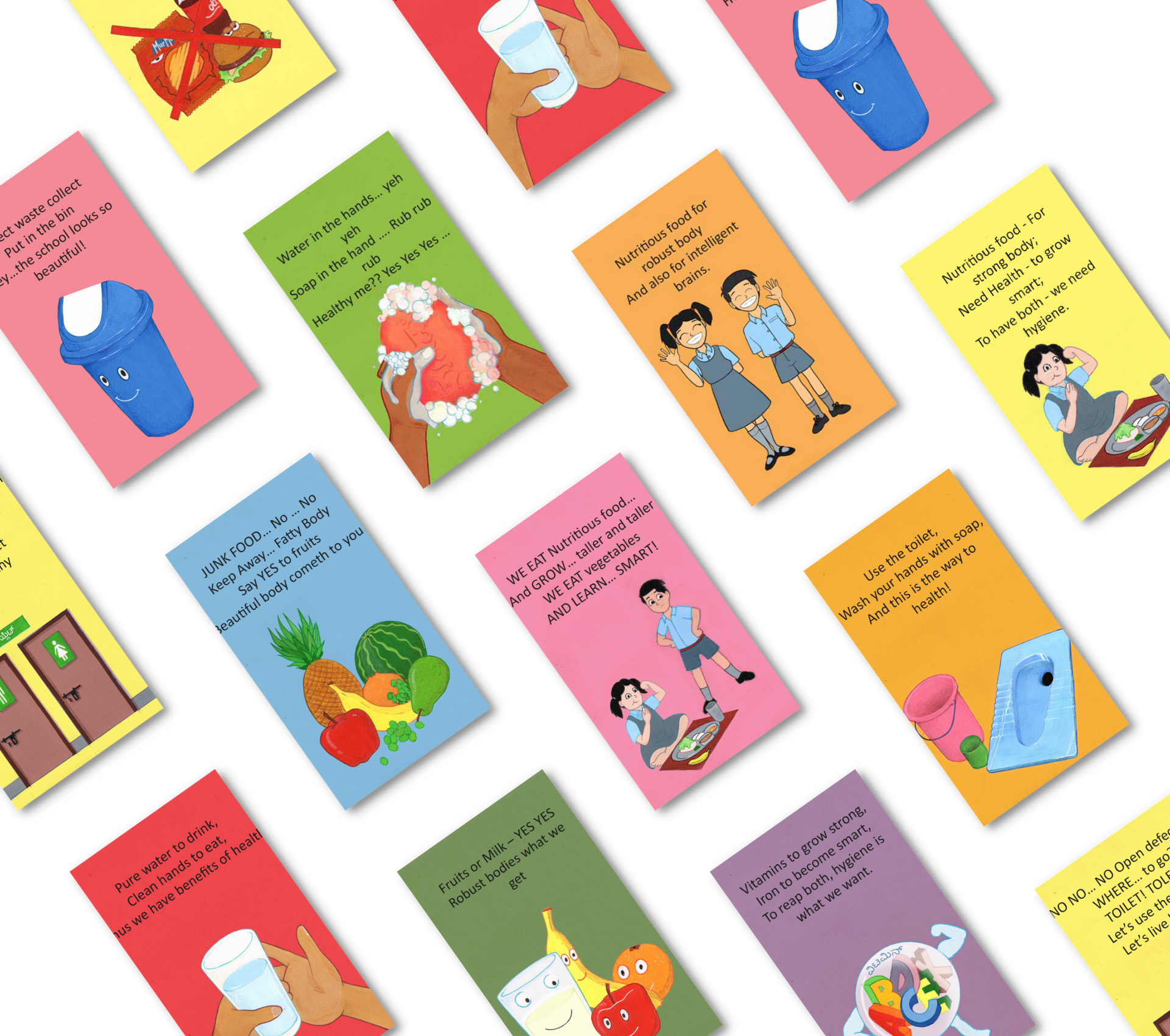
Board game Design
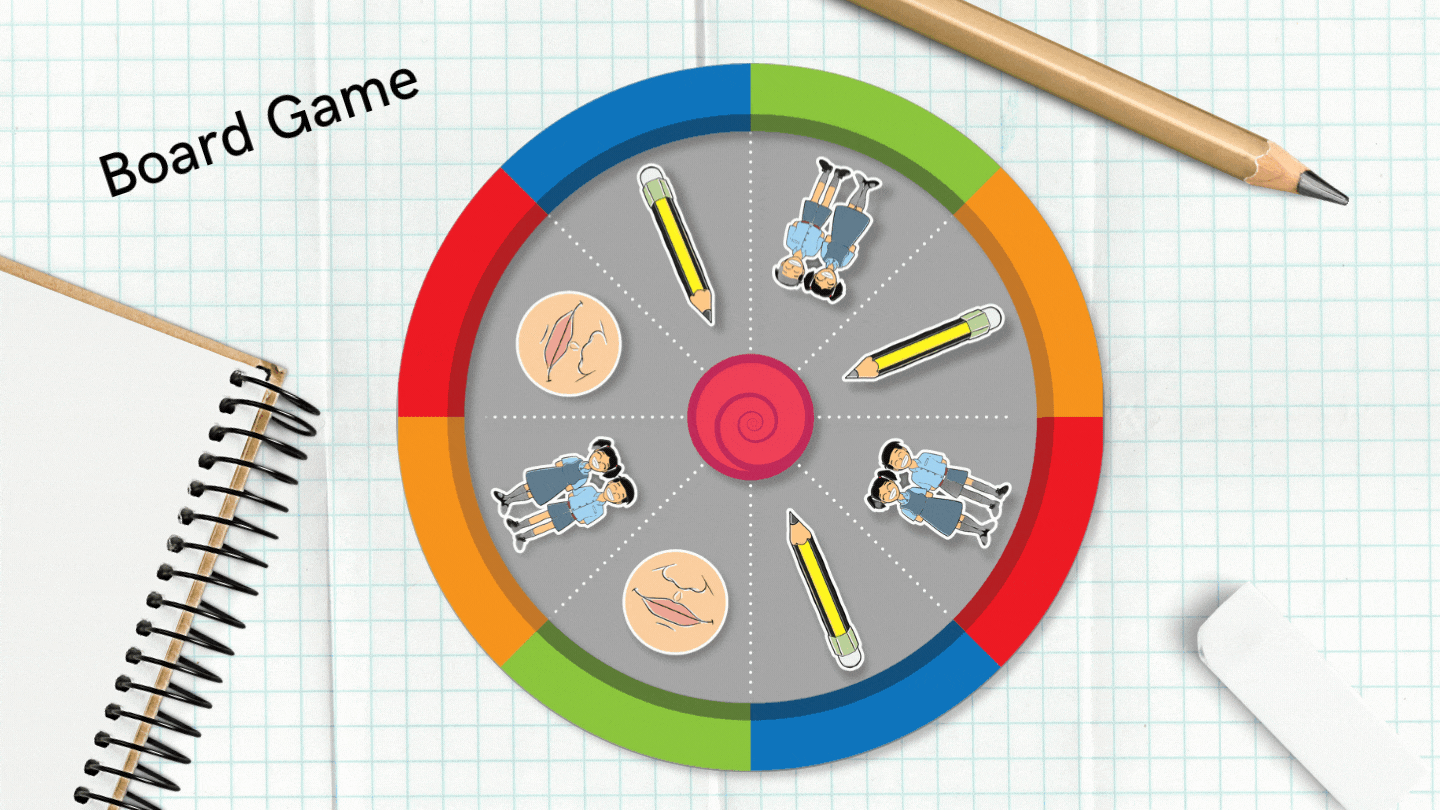
Poster Design (Kannada)
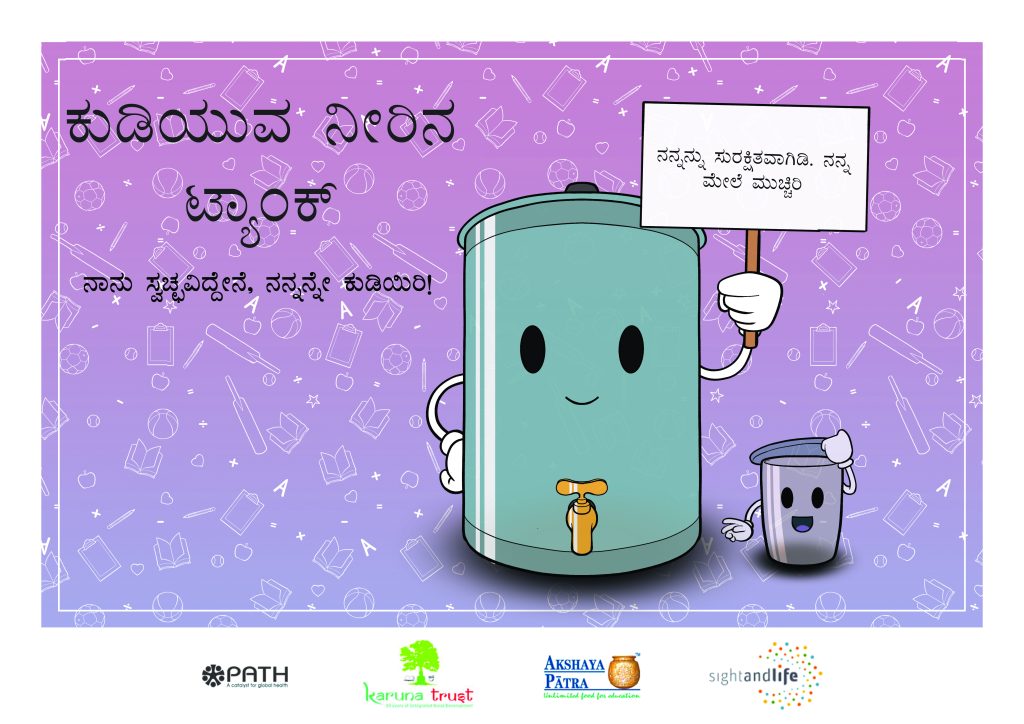
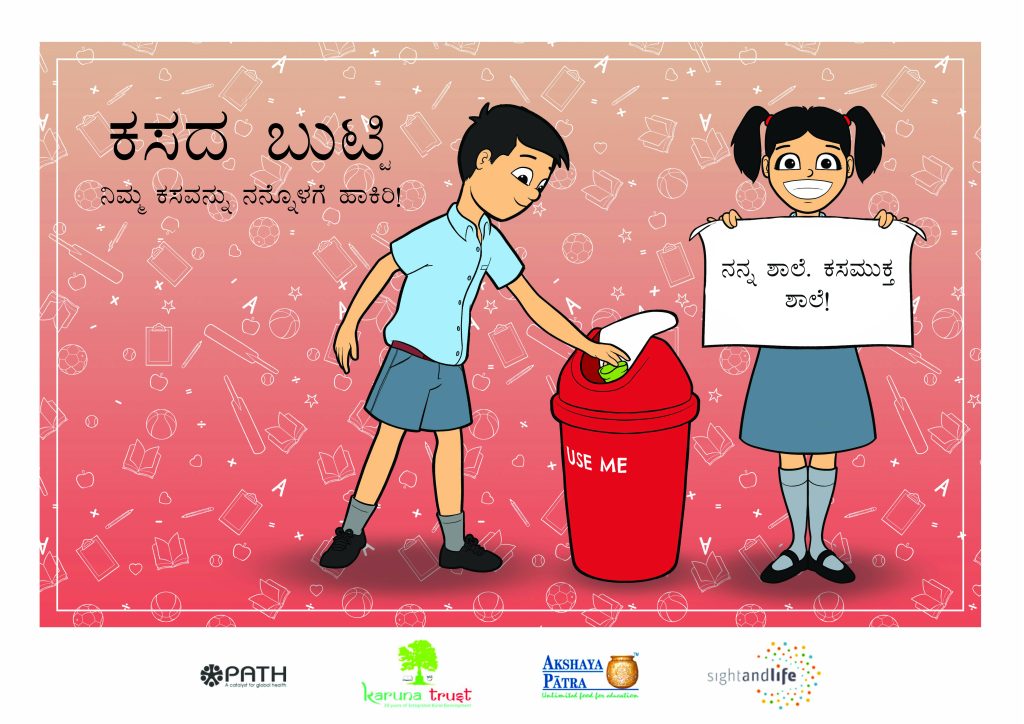
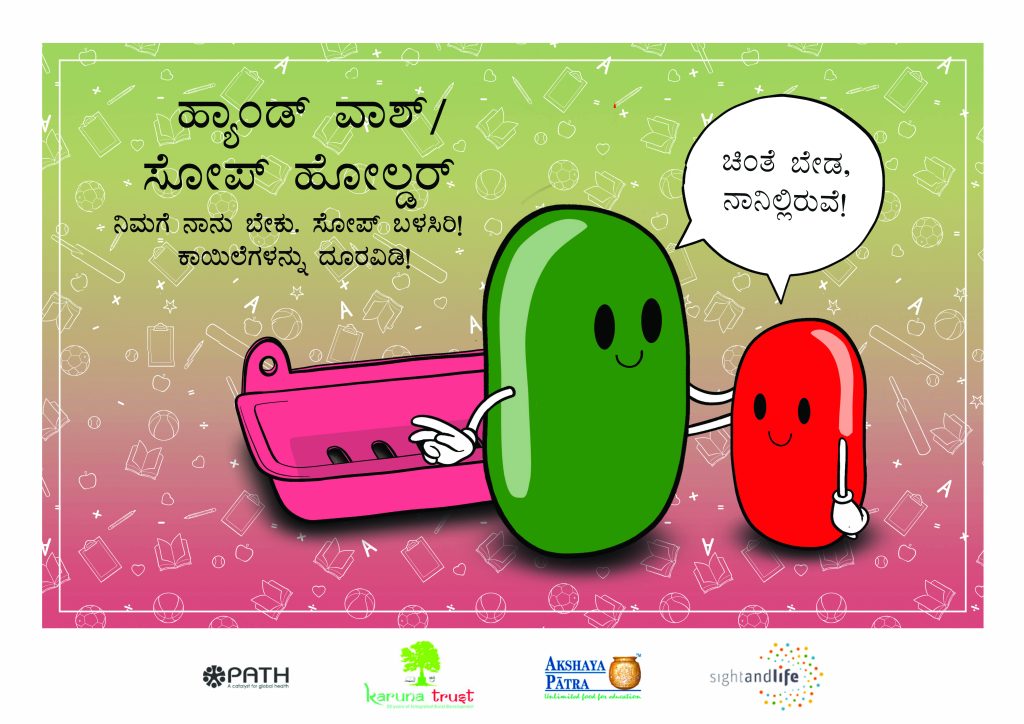
Kit Design ideas
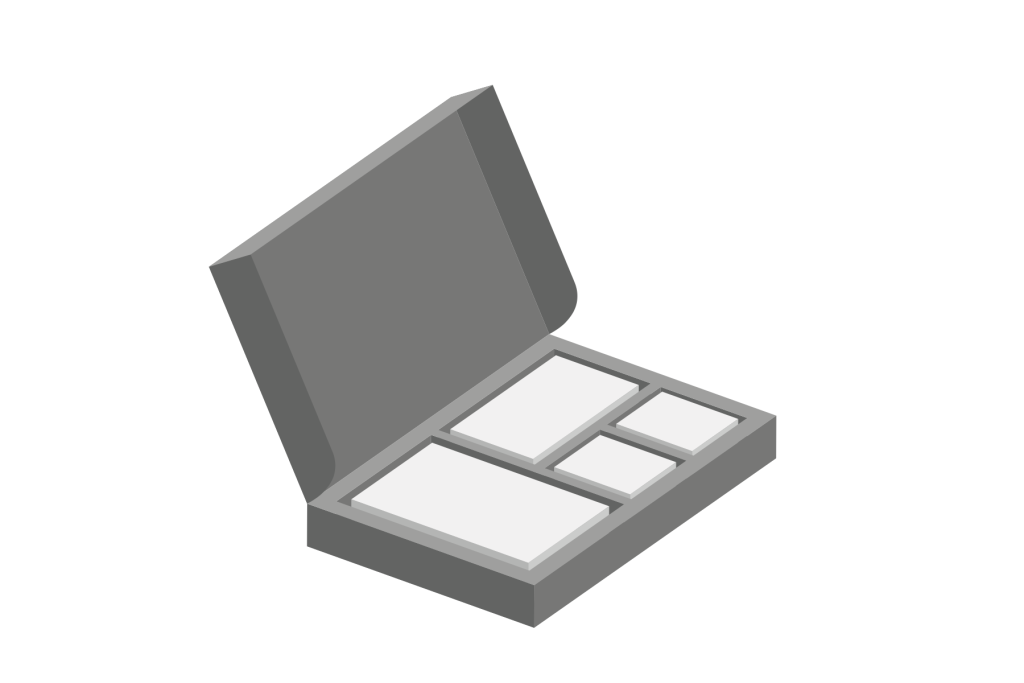
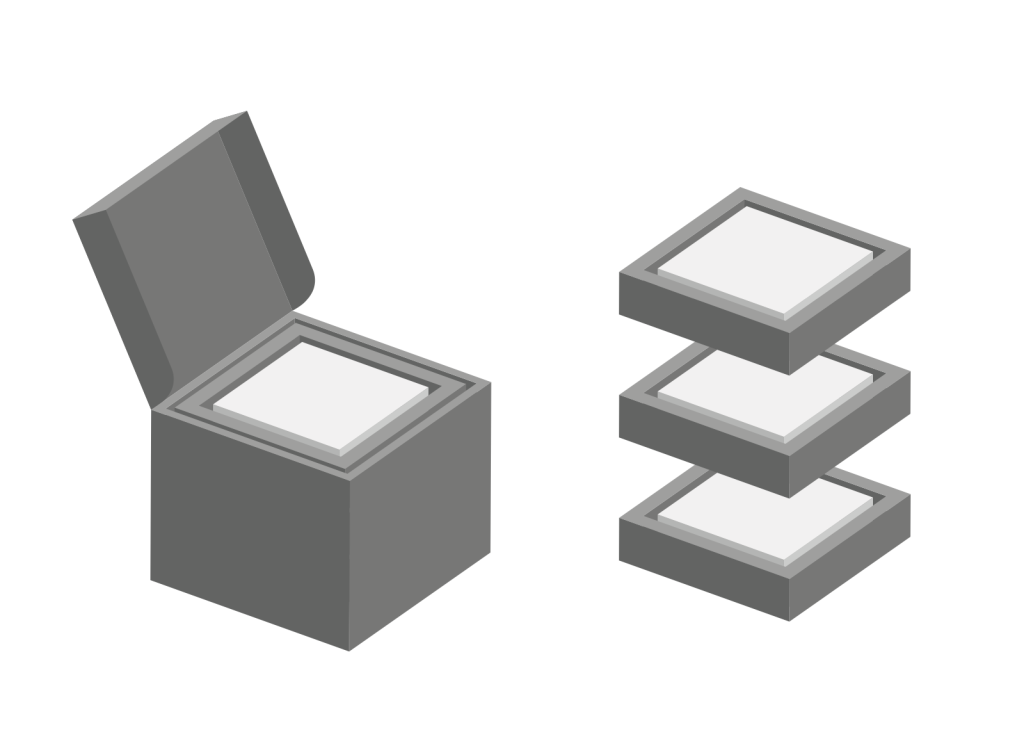
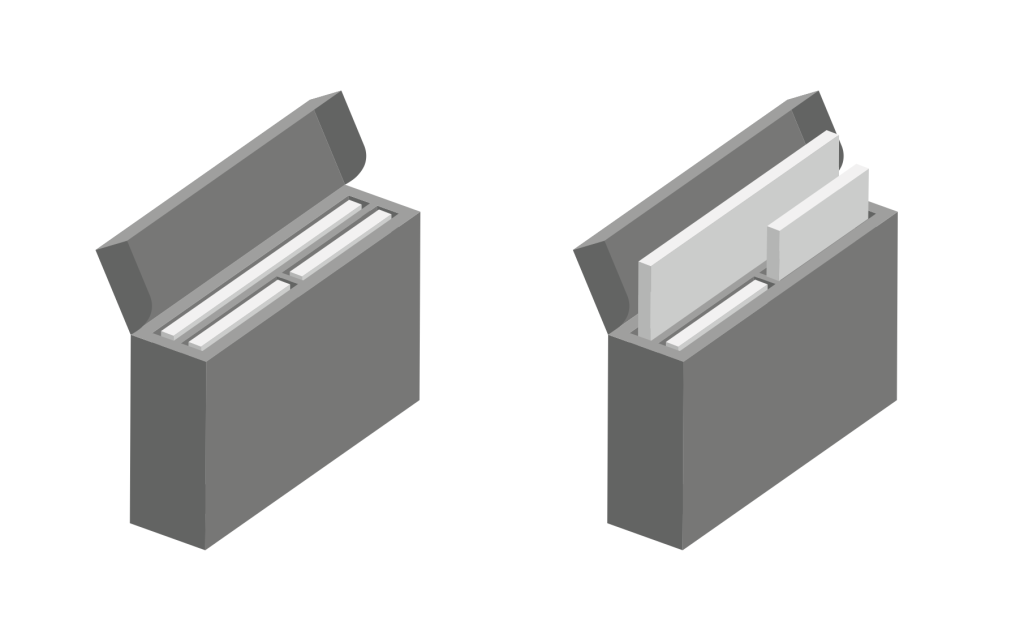
Box concept and Design
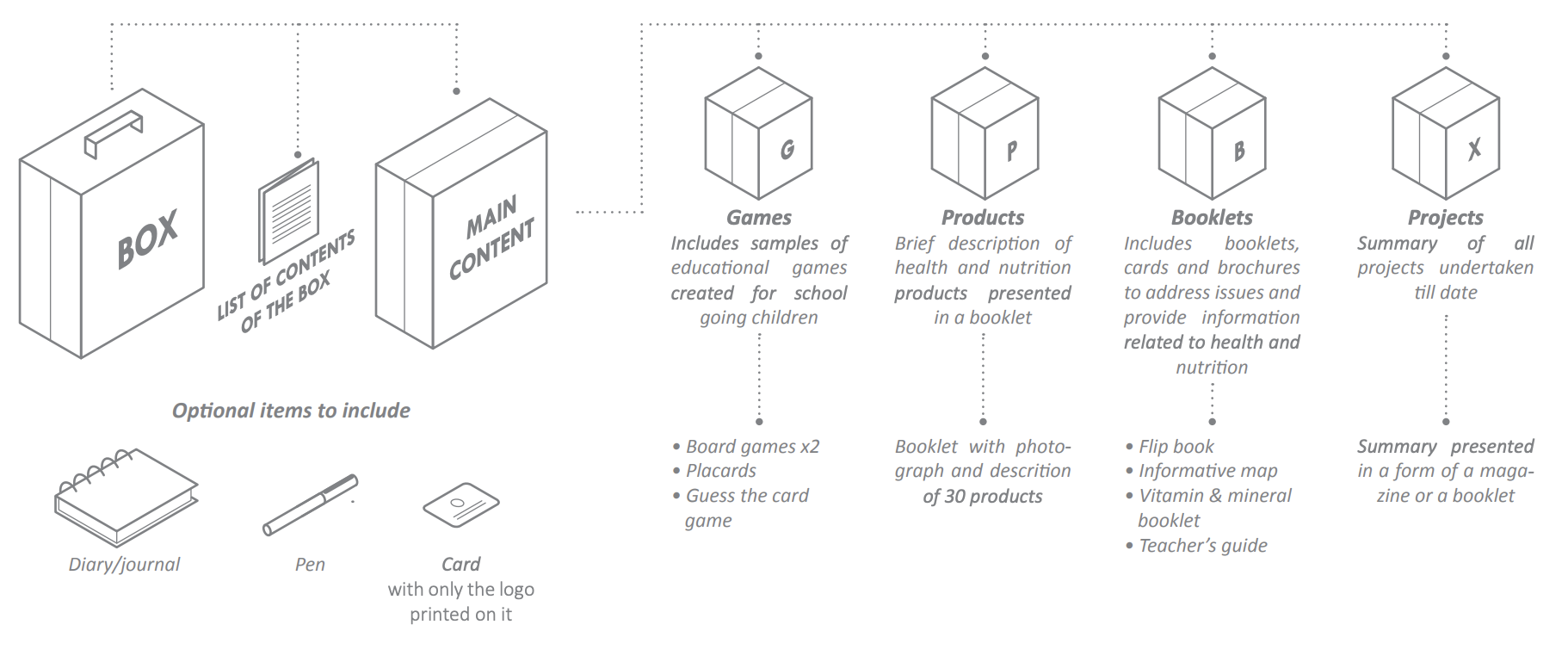
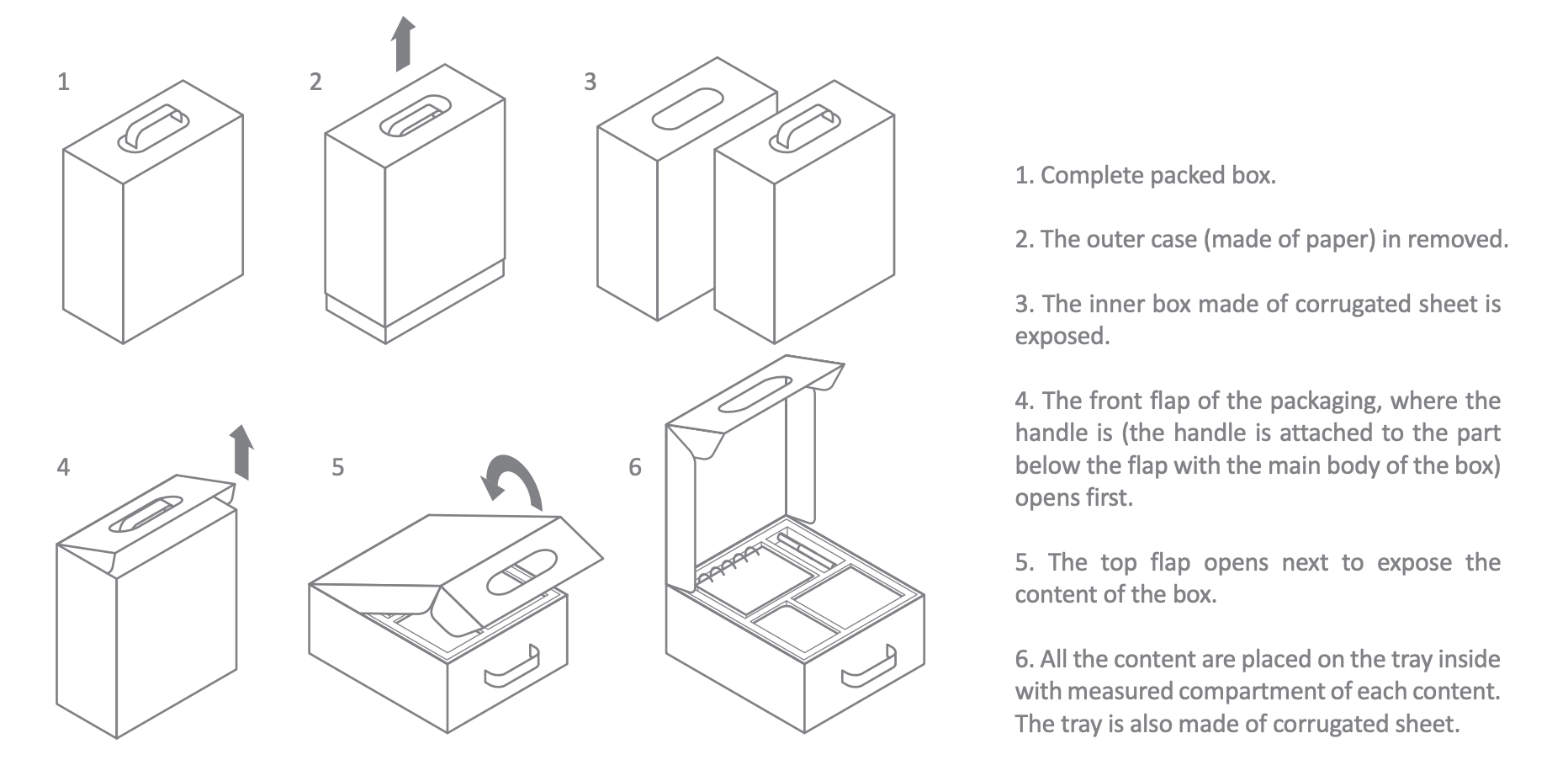
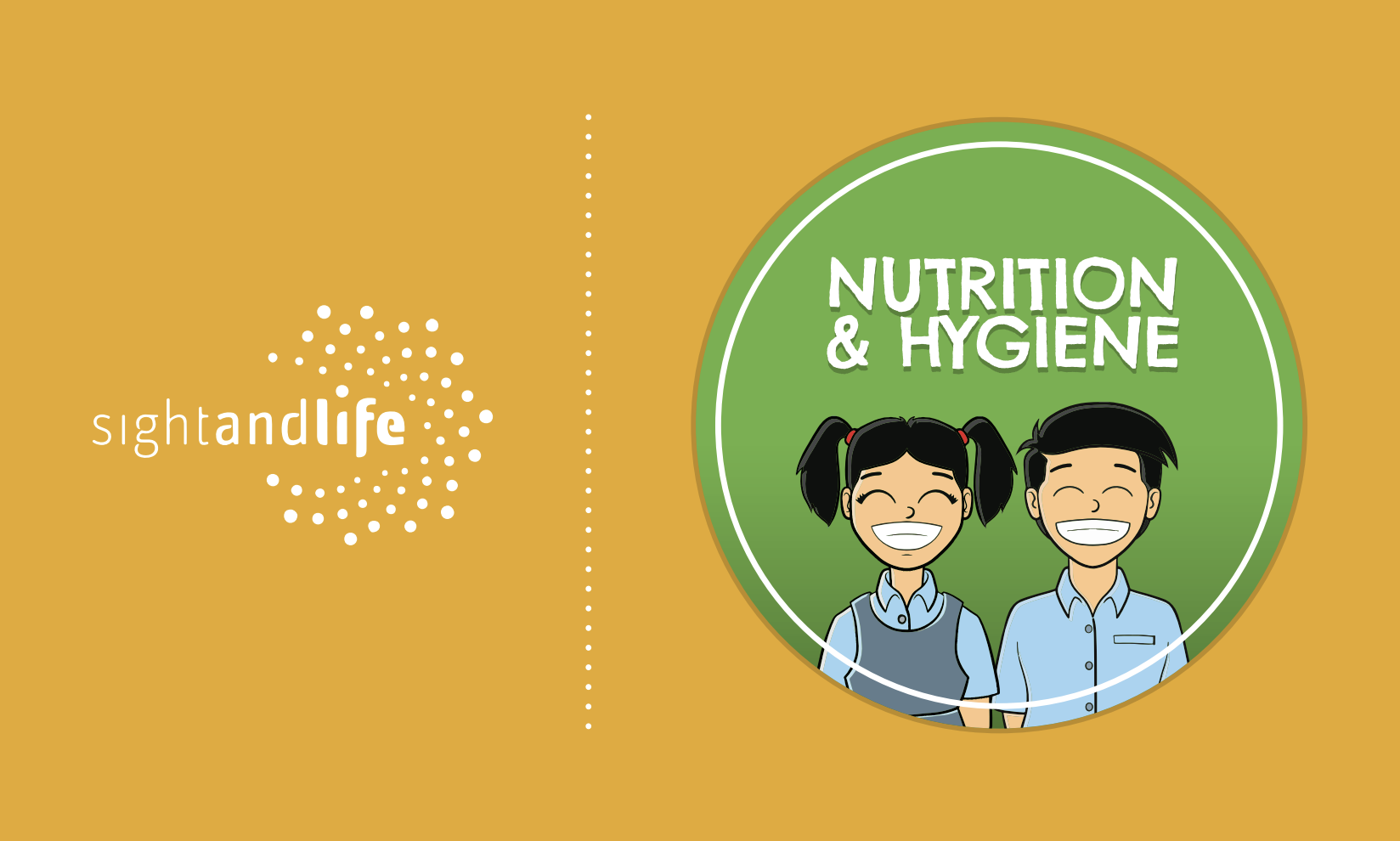

Response and Outcome
5X scale
The Pilot in 2538 schools was very successful and helped us pitch the Kit to Tamil Nadu and Kerala governments too. The project scaled 5X times reaching over 10,000 government schools in South India.
40% visible change
The awareness programme and our mission to teach and encourage children to follow healthy habits and increase the amount of nutrition intake showed a significant improvement in students.
Healthy future
We worked on building habits and understanding the importance of good and basic lifestyle changes from childhood, this not only helps them have a stronger immunity but teaches the same to the coming generations.